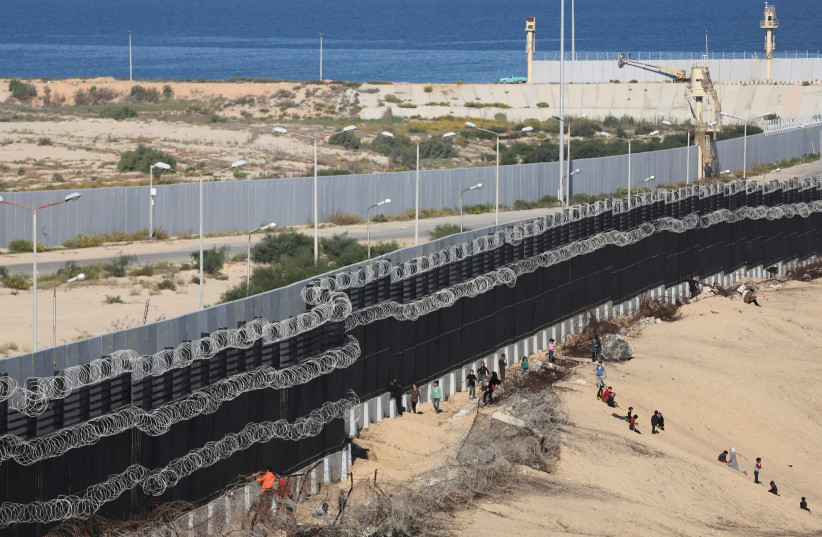The war between Israel and Hamas is causing severe damage to the Egyptian economy, and the most impacted sectors are the Suez Canal and tourism. The attacks carried out by the Houthis in Yemen on ships in the Red Sea and the Bab el-Mandeb Straits have led to a significant decline in shipping through the canal. As a result, many shipping companies are opting for the longer route around Africa and the Cape of Good Hope instead of the shortest route through the Suez Canal.
In the fiscal year ending in June 2023, Egypt generated $8.776 billion from the Suez Canal. However, since the beginning of 2024, revenues from transit fees, paid by ships navigating the canal, have experienced a sharp decline of 40% to 50%. Ongoing Houthi attacks are discouraging many shipping companies from using the Suez Canal. For those that do choose the Red Sea route, substantial increases in insurance premiums are adding to the economic challenges.
The decline in Egyptian tourism income is striking amid the current conflict. It’s hard to imagine vacationing in Sinai with Houthi missiles and drones flying overhead toward Israel. In the 2022-2023 fiscal year, tourism contributed a record $13.63 billion to Egypt’s revenue. At present, it’s challenging to fully assess the extent of the damage inflicted on Egyptian tourism by the ongoing conflict, but reports indicate a significant and alarming decline. This unfavorable situation is likely to persist as long as the war continues.
The tourism industry in Sinai supports hundreds of thousands of Egyptians, and this new crisis, coming on the heels of the COVID pandemic, poses a risk of causing irreparable damage.
The effects on the Suez Canal and the tourism sector have reduced foreign currency revenues, resulting in a significant impact on the exchange rate of the Egyptian pound. Currently valued at 31 pounds to the US dollar, it is expected to reach approximately 40 pounds to the dollar by the end of the year.
Inflation on the rise in Egypt
The rising inflation rate is further exacerbating the cost of living. Regrettably, the Egyptian government is unable to offset this rise by subsidizing essential goods, leading to a further deterioration in the standard of living for Egyptian citizens, which has already been declining in recent years.

Another substantial source of foreign currency income for Egypt is the remittances from its millions of expatriate workers. In the first half of 2023, these transfers experienced a significant 23% decrease, declining from $15.6 billion to $12 billion. The main reason for this decline is the expectation of an Egyptian pound devaluation, as the official dollar exchange rate significantly lags behind the black-market rate.
The ongoing crisis resulting from the war in Gaza compounds the challenges Egypt has been grappling with following two major global crises: the COVID-19 pandemic and Russia’s invasion of Ukraine. Adding to these concerns is Egypt’s status as the world’s largest grain importer, with 80% of its imports originating from Ukraine and Russia.
This heavy dependence has led to a substantial surge in prices and inflation. In June 2023, annual inflation peaked at 36.8%, accompanied by a 65% increase in food and drink prices. Given that approximately one-third of the 110 million population lives below the United Nations-defined poverty line of $2.15 per day, these significant price hikes are likely to have far-reaching political and social consequences. It’s important to remember that the January 2011 revolution was largely triggered by the global financial crisis of 2008 and the subsequent rise in prices.
THE POOR economic conditions are anticipated to contribute to increased unemployment. A pronounced downturn in tourism activities in Sinai and across Egypt, coupled with the persistent devaluation of the Egyptian pound leading to rising inflation, is likely to elevate unemployment rates. It is worth noting that high youth unemployment was one of the primary factors behind the onset of the Arab Spring protests in 2011.
The challenging economic conditions are expected to lead to a rise in unemployment. The significant decline in tourism both in Sinai and throughout Egypt, combined with the continuous devaluation of the Egyptian pound resulting in rising inflation, is likely to elevate unemployment rates. It is worth noting that high youth unemployment played also a major role in sparking the Arab Spring protests in 2011.
Israeli-Egyptian relations have gained attention amid reports of a strain between the two leaderships, coupled with tensions and disagreements concerning the governance of Gaza, post-war. Issues such as Israel’s desire to regain control of the Philadelphi Corridor and the Rafah Crossing, along with Egyptian concerns over potential Palestinian expulsion from Gaza by Israel, have added complexity to the situation.
However, the Houthi attacks from Yemen present an equally severe challenge directly threatening Egypt’s economy.
In economic terms, Egypt is enduring more significant repercussions than any other Arab state, including Jordan. Therefore, it is crucial for Israel to recognize that Egypt’s decision-making regarding the Gaza conflict is influenced not only by military and political considerations but also by the prevailing economic circumstances.
The writer teaches in the Department of Islamic and Middle Eastern Studies at the Hebrew University of Jerusalem and is a board member of Mitvim – The Israeli Institute for Regional Foreign Policies.
